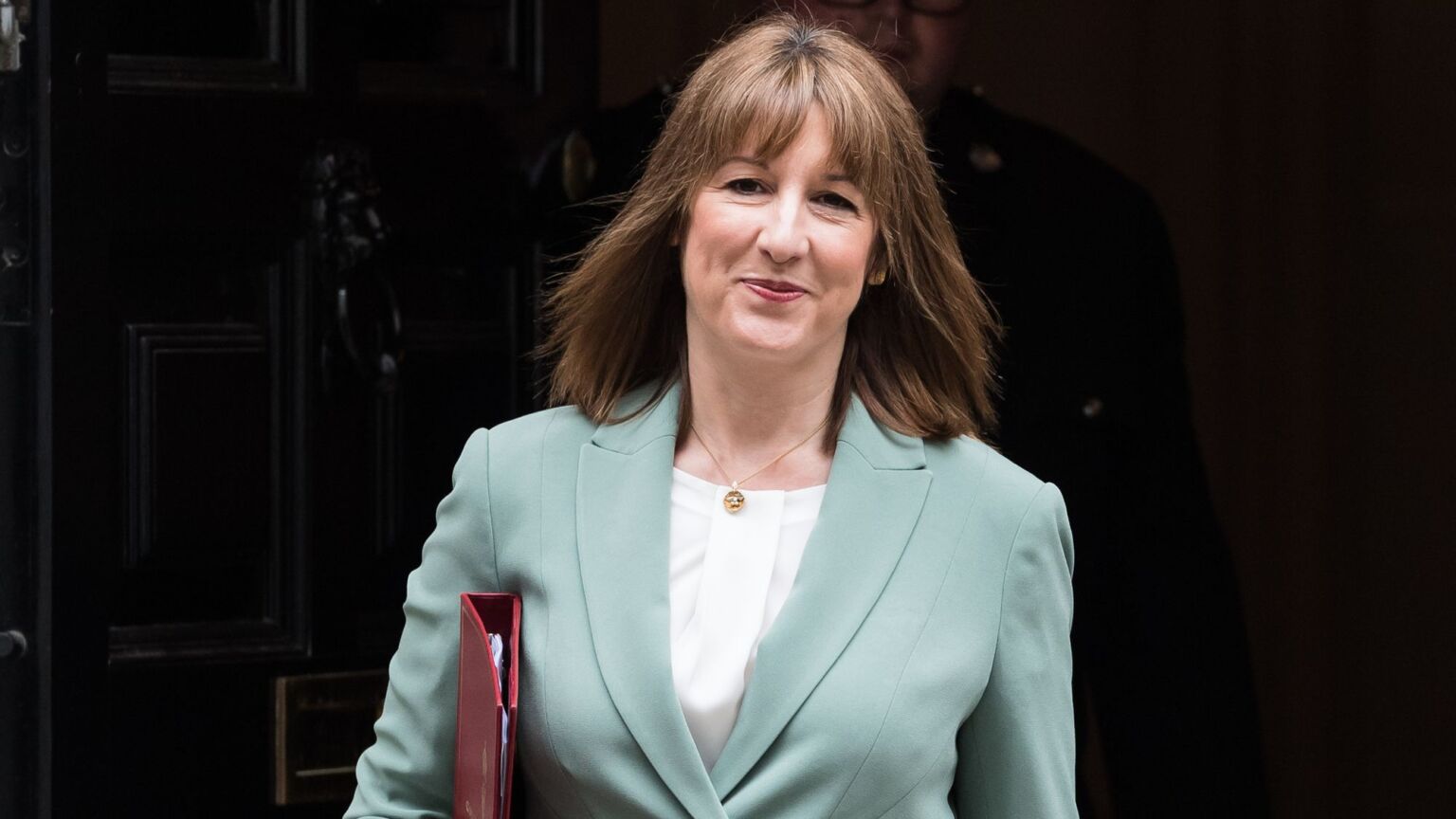Rachel the Deluded
Labour is tinkering while the British economy burns.

Want unlimited, ad-free access? Become a spiked supporter.
Playing on the title of an Australian TV series, some critics of chancellor Rachel Reeves have taken to calling her ‘Rachel from Accounts’. That’s unfair to people who work in accounts departments. Most of them can interpret a balance sheet – a skill that seems to be beyond the capabilities of Britain’s chancellor.
Presenting today’s spending review, Reeves once again told the public that she can make everything add up, in defiance of common sense. ‘Rachel the Deluded’ is a more apt nickname.
Once again, Reeves insisted that the government can stick to its public-spending commitments, while not raising taxes on ‘working people’. And it can do all this while fulfilling her self-imposed fiscal rules.
The consensus among economists is that meeting these three objectives is impossible. Of course, they could be wrong. But what is worrying is that Reeves and her government refuse to accept that they could be right. Instead, Labour is holding fast to the delusion that it can sidestep making tough decisions for the country. This approach to governance is a recipe for continued economic and political havoc.
After last autumn’s penny-pinching, national-insurance-raising budget, the chancellor told the Treasury Select Committee: ‘We will never need to do another budget like this again… We have now set the envelope for spending for this parliament, and we are not going to be coming back with more tax increases or, indeed, with more borrowing.’ She added that she would also deliver on her ‘non-negotiable’ fiscal rules.
Reeves set two new rules in that budget. She pledged to balance day-to-day spending with tax receipts and to get public debt down as a share of the economy. She pledged that both of these targets would be met by the end of the parliament in 2029.
Reeves also budgeted for a measly £9.9 billion surplus – the third smallest on record – as a buffer to absorb economic shocks or unexpected spending. This represents about a third of a per cent of gross domestic product (GDP). At the time, economists warned this was a wholly inadequate cushion.
Reeves has insisted that her once-in-a-parliament budget has brought ‘stability’ back to the public finances. But by the spring statement in March that buffer had been more than wiped out by higher interest costs on existing borrowing. Reeves responded by fiddling with the budgeted figures, reducing spending increases in particular. She did just enough tweaking to restore her phoney headroom back to £9.9 billion.
In her spring statement, the chancellor admitted that, since the budget, ‘global economic policy uncertainty [has] increased sharply’ and that ‘global financial market volatility [has] risen’. Yet Rachel the Deluded insisted that ‘stability is paying off’ and that restoring that same sliver of wiggle room in the spreadsheets was sufficient to ensure that public finances could continue ‘on a sustainable path’.
Economists have warned that this can’t last and that the chancellor will need to make further changes in this year’s autumn budget. They claim that another round of tax increases will be needed. Paul Johnson, the outgoing director of the Institute for Fiscal Studies, has counselled the government that ‘if you are going to have “iron-clad” fiscal rules then leaving yourself next to no headroom against them leaves you at the mercy of events’.
The OECD, the think-tank of the world’s industrialised economies, agrees. Ahead of the spending review, the OECD reiterated that the current ‘very thin fiscal buffers could be insufficient to provide adequate support without breaching the fiscal rules in the event of renewed adverse shocks’. It advises that ‘strengthening the public finances remains a priority’, suggesting a combination of spending cuts and additional tax-raising measures.
But Reeves continues to brush it all off. In her fantastical spending-review statement, she claimed that Brits are starting to ‘see the results’ from her having ‘fixed the foundations’ and delivered ‘economic stability’.
In the spending review, the chancellor was not tackling the pressures on public finances. She was simply divvying up funds for the next three years, from an already budgeted total – allocating each department a specific slice of the cake. So, for every loud announcement of ‘additional’ spending today, the chancellor was quietly squeezing spending in another department. The above-average three per cent increase in NHS spending, for example, comes from cutting expenditure in other sectors. We will soon hear about the negative impact of the spending review in areas like social care, further education and prisons.
Even some departments supposedly ‘protected’ from spending cuts will soon be struggling. The core schools budget, a supposed beneficiary of the spending review, will only receive an extra 0.4 per cent a year. That could be wiped out by new pay awards for teachers.
And what of the nation’s defences? Last week, the government agreed it would implement all 62 recommendations from the strategic defence review, which warned that a target of three per cent of GDP was needed to rearm and defend Britain. The spending review has now watered down the three per cent target, calling it an ‘ambition’ only. Defence spending is set to stay flat at 2.6 per cent of GDP after 2027.
The government’s problems have been exacerbated by this spending review. The economy remains impervious to ministers’ declarations that growth is their ‘top mission’. We are left to sit tight, awaiting deluded Rachel’s next wave of budgetary changes.
Worse still, the spending review shows that the chancellor is continuing to ignore mounting public debt. Indeed, this clueless government has doubled down on the fantasy that the UK can borrow its way to growth, even though the national debt is already the equivalent of annual economic output.
Debt-interest payments are now well above £100 billion a year, which is over four per cent of GDP. That’s a lot more than is being spent on our underfunded defences. Meanwhile, the government’s long-term borrowing costs are trending upwards. Undeterred, Reeves proudly boasts about an additional £113 billion in capital spending, thereby further expanding rising public debt.
None of Reeves’ touted capital spending is ‘free’ money; it is all funded by extra borrowing. As Ruth Curtice, a former senior Treasury civil servant now at the Resolution Foundation think-tank, explained, this is all a case of ‘jam today and pain tomorrow’.
So, how can we solve a problem like Rachel?
First, the government needs to abandon the technocratic contraption of fiscal rules, which has hamstrung successive chancellors for three decades. Rather than being guided by a set of rules presided over by the Office for Budget Responsibility, the government needs to start showing some political leadership. That means thinking through how its stewardship of the public finances can best serve the national interest.
Second, the chancellor needs to take her political responsibilities seriously when deciding how best to spend the resources available. This means making the most of what we spend and shrinking expenditure in two key areas: corporate subsidies and welfare spending. We need to start transitioning British society away from its paralysing dependency culture, which has been incapacitating both businesses and individuals.
Third, spending cuts in these areas would finally allow the government to reduce new public borrowing. And this, in turn, would allow it to achieve what should be a key objective – reducing the national debt.
Finally, with the additional resources generated by spending cuts on corporate subsidies and welfare, the chancellor could set about judiciously investing elsewhere – in research, science, cheap energy, water, transport, social housing. That is, actual public goods.
Rachel the Deluded needs to stop living off the future, and start investing in the present.
Phil Mullan’s Beyond Confrontation: Globalists, Nationalists and Their Discontents is published by Emerald Publishing. Order it from Amazon (UK)
£1 a month for 3 months
You’ve hit your monthly free article limit.
Support spiked and get unlimited access.
Support spiked – £1 a month for 3 months
spiked is funded by readers like you. Only 0.1% of regular readers currently support us. If just 1% did, we could grow our team and step up the fight for free speech and democracy.
Become a spiked supporter and enjoy unlimited, ad-free access, bonus content and exclusive events – while helping to keep independent journalism alive.
———————————————————————————————————————————–
Exclusive January offer: join today for £1 a month for 3 months. Then £5 a month, cancel anytime.
———————————————————————————————————————————–
Monthly support makes the biggest difference. Thank you.










Comments
Want to join the conversation?
Only spiked supporters and patrons, who donate regularly to us, can comment on our articles.